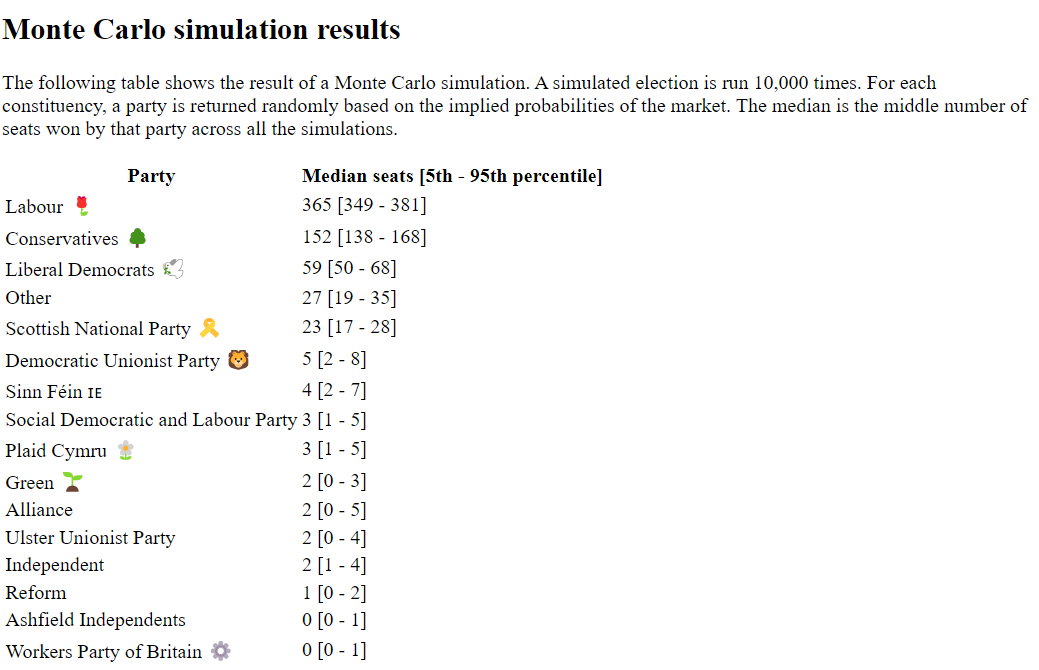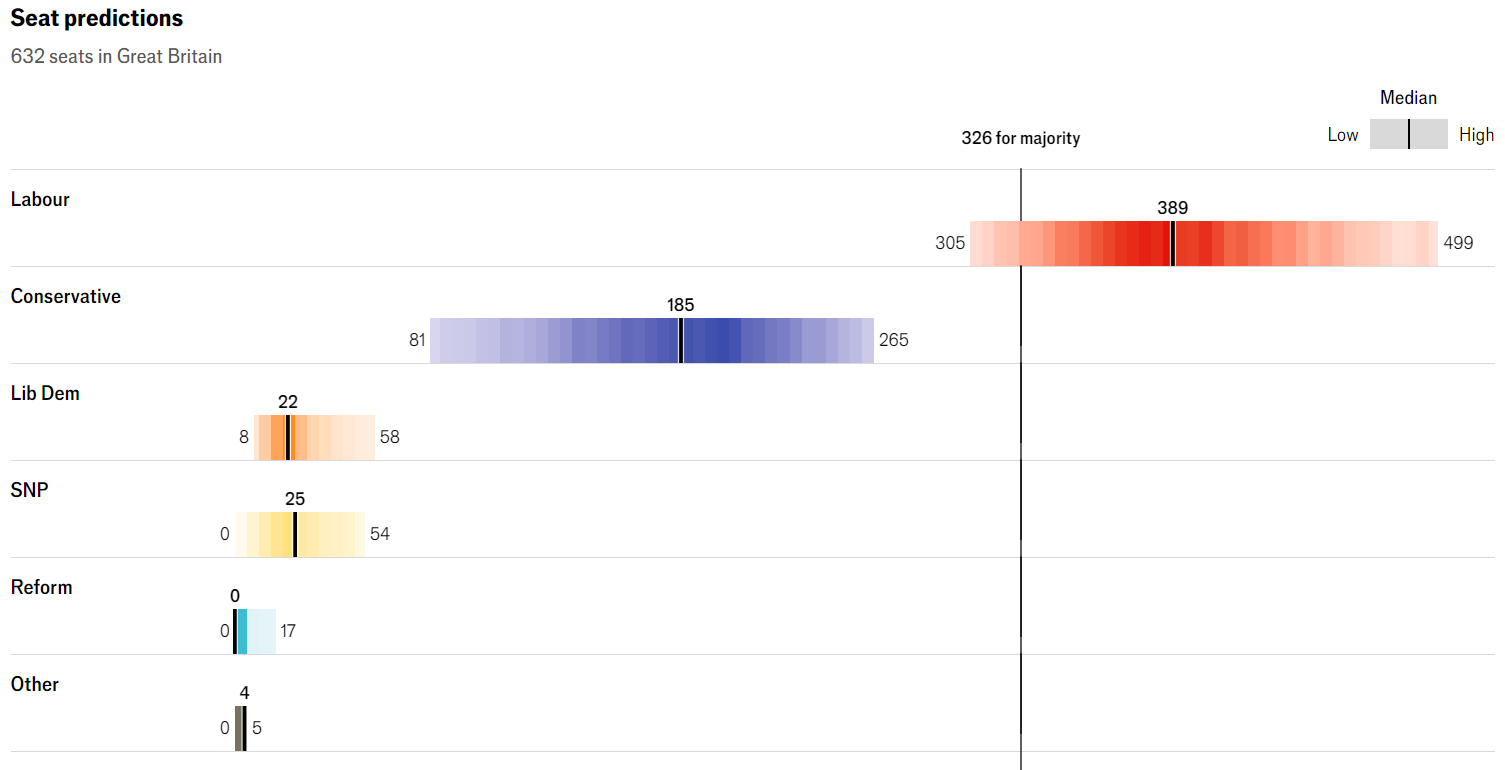
A while ago, @NoitUK, @Tetraspace, and I made markets for every constituency in the 2024 UK General Election. Over the past day or two, @AustinPlatt has written some code to extract the leaders in each constituency (and also a Monte Carlo simulation) to create a seat projection for the election based on the data from all of the 650 markets. This multi-market is for making predictions about how accurate that projection will be.
The projection can be found here: https://manifold-uk-election-2024.netlify.app/
But note that it updates regularly, so as the individual constituency markets are bet on, the overall projection will change. Therefore, this multi-market is based on the projection at the time of market creation, pasted below:

Please feel free to discuss the approach in the comments, and do add your own answers (I would make more to kick off, but it's so expensive these days...).
(I suppose if you believe the projection, you should buy the "X party will be within the 5-95 confidence interval" option to 90%. If you don't believe the projection, there must be some mana for you to make on the individual constituency markets...)
Related questions
🏅 Top traders
| # | Name | Total profit |
|---|---|---|
| 1 | Ṁ288 | |
| 2 | Ṁ117 | |
| 3 | Ṁ76 | |
| 4 | Ṁ51 |
I just made a couple of tweaks to the projection site:
- I removed the dummy market, so there are now exactly 650 markets which matches the number of consituencies.
- I've added a 'sort by' feature so you can sort the consituencies on various meaures. It's quite interesting to see e.g. the tighest 3-way races, or the safest seats. I will probably go through some of the markets with the highest "Other" probabilities and start betting against them soon.
@AustinPlatt ooh, nice. I particularly like the 3 way sort!
There might be an argument against betting down "other" too much, at least without checking... Some of those are constituencies where there are only 2 parties in the market (because of market creation costs) and really the "other" is standing in for "lib dem" or something. Probably most of them are still too high, but some might not be.
Interesting to compare to the Economist forecast. Broad agreement on Labour and SNP, but we have Lib Dems much higher and Conservatives lower.

https://www.economist.com/interactive/uk-general-election/forecast
@JoshuaWilkes I don't really know enough about uk politics to comment on the individual races, but even if they were perfectly calibrated, they'd underestimate labour in aggregate simply because they don't treat races as highly dependent/correlated, which they are.
@SemioticRivalry [I made the site]. I agree that the markets are dependent, so treating them as independent during the simulation is inaccurate. Do you have any thoughts about how that could be corrected for during the simulation?
@JoshuaWilkes I think it has the Conservatives a bit low. I think the poll gap will narrow during the election campaign. (My mana is already where my mouth is on this one. I might have quite a few losses on various markets by the day after election day!)
@SemioticRivalry I think this question about correlated results is quite complicated. We're not sampling from a distribution like in normal MC. Shouldn't it be the case that correlations in seat results are already baked into the probabilities in the individual markets?
(Even if I'm wrong about the above, I don't see how this would result in underestimating Labour. Wouldn't it just result in too-narrow confidence intervals?)
@Fion poll gap definitely could narrow. That would be the normal thing to happen. My sense though, is that the Tories have set themselves on an implosion course and don't seem to know what to do about it.